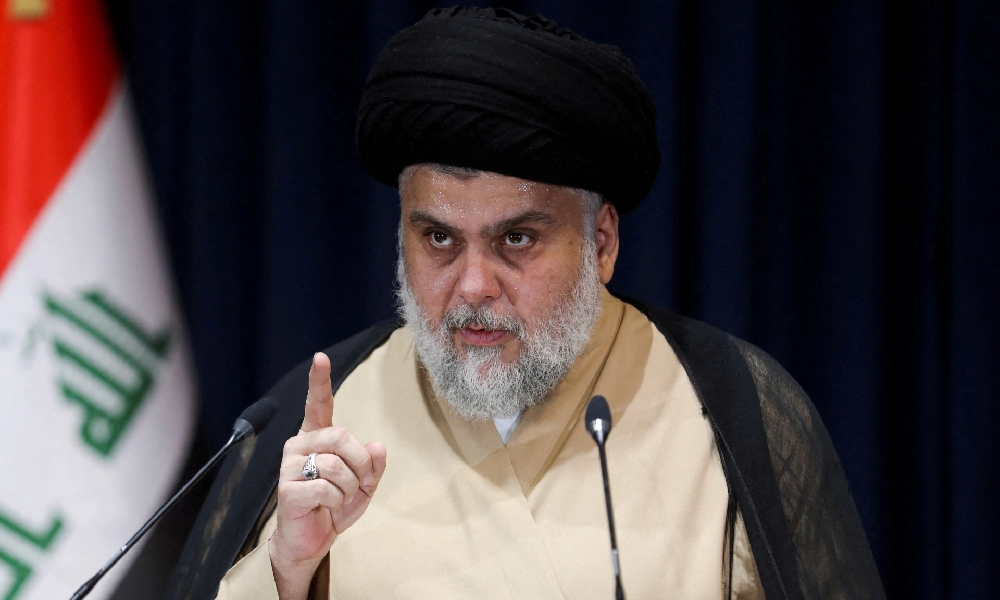BAGHDAD: Iraq's powerful Shiite cleric Moqtada Sadr announced Monday he is quitting politics, after a nearly-year long political stalemate that has left the country without a new government. "I've decided not to meddle in political affairs. I therefore announce now my definitive retirement," said Sadr, a longtime player in the war-torn country's political scene. He made the announcement on Twitter, where he added that "all the institutions" linked to his Sadrist movement will be closed, except the mausoleum of his father, assassinated in 1999, and other heritage facilities.
His latest statement came two days after he said "all parties" including his own should give up government positions in order to help resolve a months-long political crisis. Since legislative elections in October last year, political deadlock has left the country without a new government, prime minister or president, due to disagreement between factions over forming a coalition. Sadr and his supporters have been calling for parliament to be dissolved and for new elections, but on Saturday he said doing so was not "so important".
Instead, it is "more important" that "all parties and figures who have been part of the political process" since the 2003 US-led invasion "no longer participate", Sadr said. "That includes the Sadrist movement," he said, adding that he was willing to sign an agreement to that effect "within 72 hours". The grey-bearded preacher has millions of devoted followers and once led a militia against American and Iraqi government forces, following the toppling of dictator Saddam Hussein in the invasion.
Sadr's supporters have for weeks been staging a sit-in outside Iraq's parliament, after initially storming the legislature's interior on July 30, to press for their demands. They were angered after their Shiite rivals, the pro-Iran Coordination Framework, nominated a candidate they saw as unacceptable for prime minister. Sadr's rivals in the Framework want a new head of government to be appointed before any new polls are held.
Caretaker Prime Minister Mustafa Al-Kadhemi earlier this month convened crisis talks with party leaders, but they were boycotted by the Sadrists. Iraqis say the political infighting has nothing to do with their day-to-day struggles. Iraq has been ravaged by decades of conflict and endemic corruption. Oil-rich but blighted by ailing infrastructure, unemployment, power cuts and crumbling public services, Iraq now also faces water shortages as drought ravages swathes of the country.











